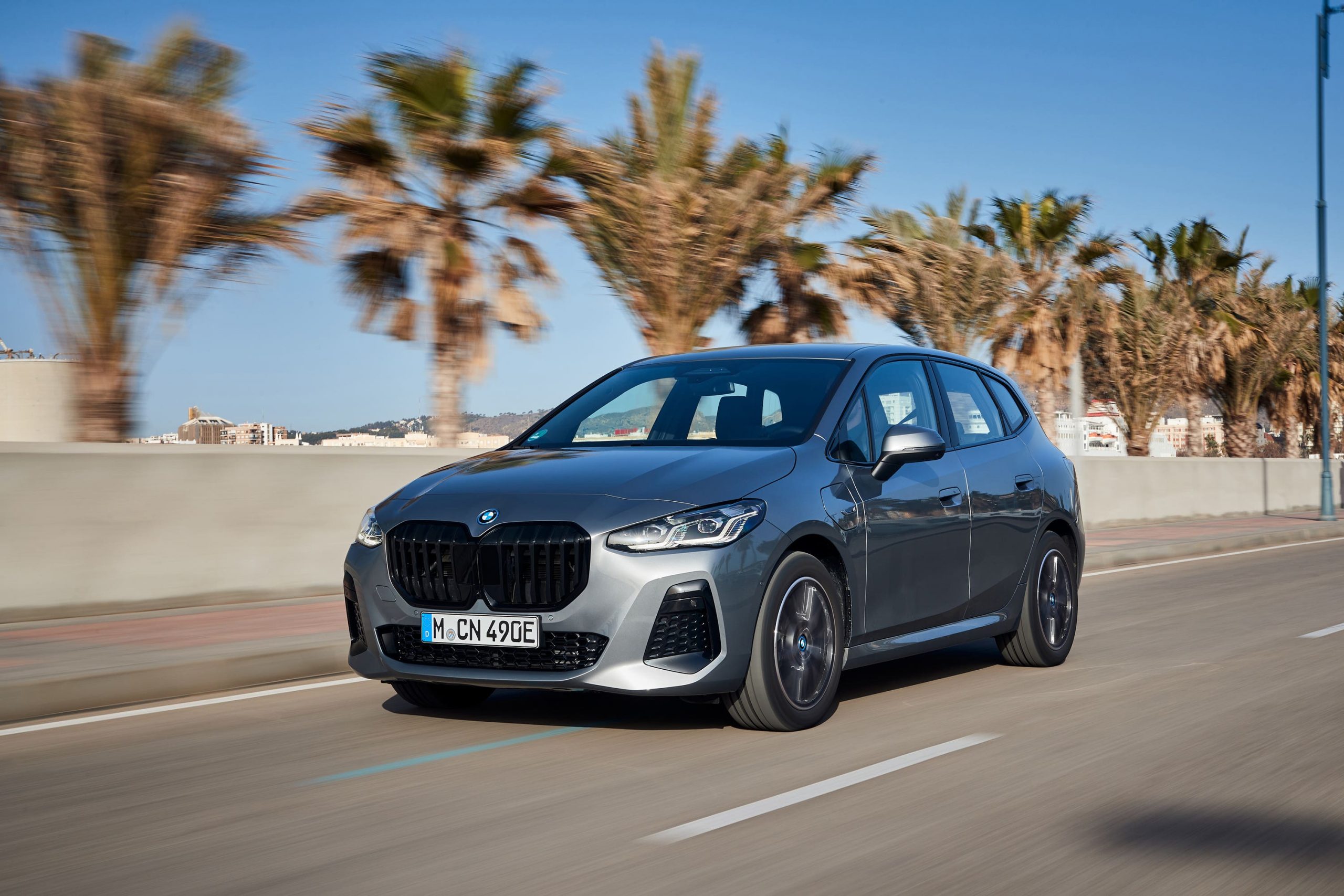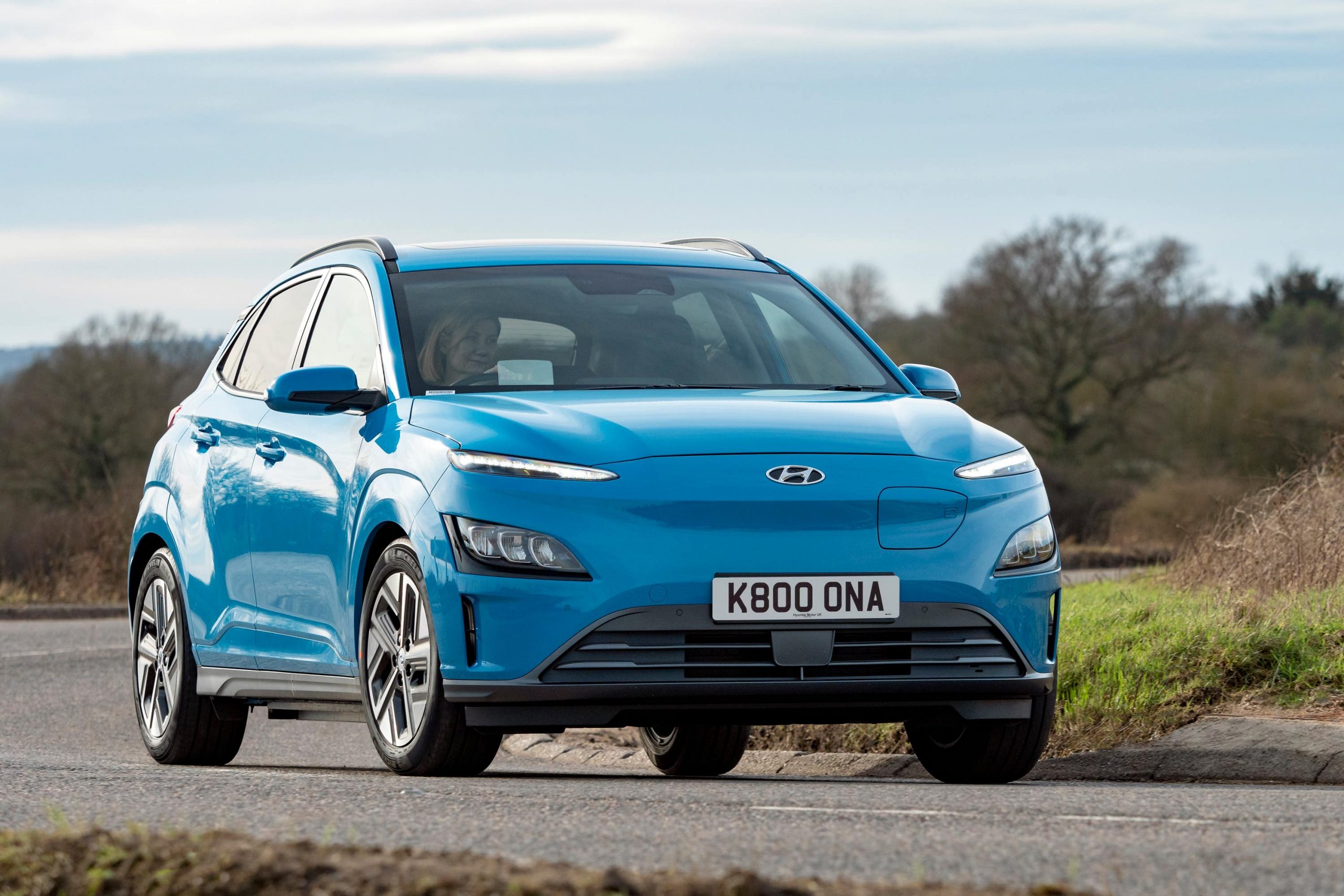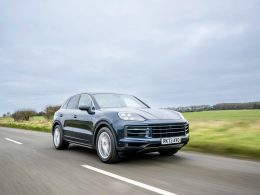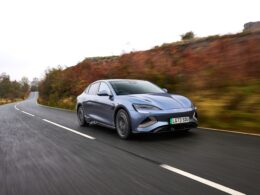The 2 Series Active Tourer is getting a plug-in hybrid setup and we’ve had an early try of it. JACK EVANS explains what he found.
BMW’s new 2 Series Active Tourer is on the way. Initially launched with a series of petrol and diesel engines – as well as mild-hybrid variants – it’s set to be joined later on by a new plug-in hybrid version, bringing a whole lot of performance as well as plenty of electric-only ability.
BMW was keen to stress that the cars we were in were prototype vehicles, but on face value at least they appeared awfully road-ready. The big change here, of course, is that hybrid powertrain, which is one of BMW’s very latest plug-in hybrid setups designed to offer a boatload of efficiency as well as a surprising amount of power for a car like the Active Tourer.
Elsewhere, we’ve got BMW’s latest iDrive operating software – which has already seen use in cars like the i4 and iX – as well as a spacious interior with loads of flexible loading solutions.

We’re driving the 230e xDrive, which is the most powerful 2 Series Active Tourer you’ll be able to get. Between a combination of a 1.5-litre turbocharged petrol engine and its electric motor, you’re getting a huge 322bhp, while a 16.4kWh battery – of which 14.2 is usable – brings a very decent electric range of up to 55.9 miles. Four-wheel-drive is here as standard, too.
BMW claims a very respectable 5.3-second zero to 60mph time, yet despite this performance, you could see up to 256.8mpg when the batteries are fully charged. Incidentally, a full charge will take two and a half hours when hooked up to a conventional 7.4kW home wallbox. CO2 emissions of between 22 and 30g/km are also impressively low.
Off the bat, it’s clear to see that this is a very quick car. It might be even more exaggerated simply because you’re in a practicality-focused MPV, but the 230e really does pick up pace quickly. The steering is slightly too light, mind you, which can lead it to feel a touch nervous.

One of the most impressive aspects of the whole package is the regenerative braking. BMW has fitted it with an intelligent system that can automatically detect a car in front and will adjust the amount of braking accordingly. It even uses satellite navigation information to predict bends ahead and change the regen to reflect this – and the system doesn’t have to have a route pre-programmed in order for this to work, either. It’s really clever and feels even more intuitive from behind the wheel, too.
This plug-in hybrid version doesn’t have that many styling tweaks over the regular 2 Series Active Tourer. It’s still a reasonably high-up design, with those uber-large kidney grilles dominating the front end of the car. Around the back, the hybrid gains some extra badging to denote its plug-in nature, but there’s very little to differentiate this against the standard car.
The easiest way to tell this car apart from the regular 2 Series Active Tourer is its charging flap, which is located on the front wing of the car and features a small amount of chrome detailing.

Much like the regular Active Tourer, this plug-in hybrid has a very wide, spacious cabin which has plenty of storage for odds and ends. The area usually taken up by a regular handbrake has been cleaned up too, freeing up extra storage space. The front seats offer a wide view of the road ahead while those sitting in the rear can take advantage of a decent amount of head and legroom.
As with so many other plug-in hybrids, the 230e does suffer a boot space penalty due to its electrified powertrain. So whereas in the 218i petrol you get up to 470 litres or 1,455 litres with the rear seats flat, this shrinks to 406 and 1,370 litres respectively in the plug-in hybrid. It’s still not a bad amount of space, mind you – but if you’re after the best possible practicality you’ll most likely lean towards those regular models.
We’re yet to have a full idea of the plug-in hybrid’s specification, but going off the regular car’s setup it’s likely that it’ll get a lot of equipment as standard. All cars get the latest version of BMW’s iDrive system, which is lifted from the i4 and iX electric models. As with the standard Active Tourer, there’s no rotary controller, so you have to rely on either touch or voice controls.

Luckily the screen itself is responsive, but it seems like an awful lot of information has been located within the system, requiring a few too many menus to access simple functions. The heated seats, for instance, need you to go through two separate menus to switch on.
With its very powerful hybrid setup, the 230e is a bit of a dark horse in the segment. Though it looks reasonably ‘normal’ from the outside, it’s got some genuine performance to tap into and this could make it an appealing prospect for those who want practicality but also a decent turn of pace, too.
But that reduced boot space does mean that the plug-in hybrid Active Tourer goes against what people will be attracted to the car for in the first place. That said, lower running costs and improved emissions might help to counteract this.











